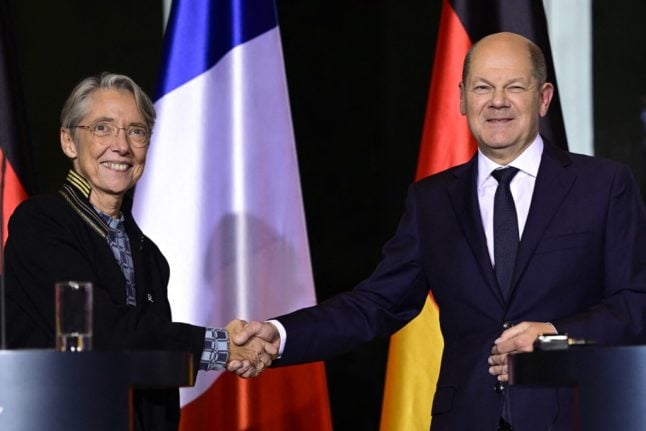“There are rules for what happens on the field but I think it’s a good thing for players to be able to express themselves on the values that we obviously completely share, while respecting the rules of the tournament,” said Borne at a press conference in Berlin on Friday.
Germany’s players made headlines before Wednesday’s shock loss to Japan when the team lined up for their pre-match photo with their hands covering their mouths after FIFA’s threat to sanction players wearing the rainbow-themed armband.
Seven European nations, including Germany, had previously planned for their captains to wear the armband, but backed down over FIFA’s warning.
Following Germany’s action, Wales and the Netherlands have since come out to say they would not mirror the protest.
Borne’s visit to Germany was her first since she was named to her post in May.
Following talks with German Chancellor Olaf Scholz, the two leaders signed an agreement for “mutual support” on “guaranteeing their energy supplies”.
Concrete measures outlined in the deal include France sending Germany gas supplies as Berlin seeks to make up for gaping holes in deliveries from Russia.
Germany meanwhile would help France “secure its electricity supplies over winter”, according to the document.
France had since 1981 been a net exporter of electricity to its neighbours because of its nuclear plants. But maintenance issues dogging the plants have left France at risk of power cuts in case of an extremely cold winter.
The two leaders also affirmed their countries’ commitment to backing Ukraine “to the end of” its conflict with invaders Russia.



 Please whitelist us to continue reading.
Please whitelist us to continue reading.
Member comments